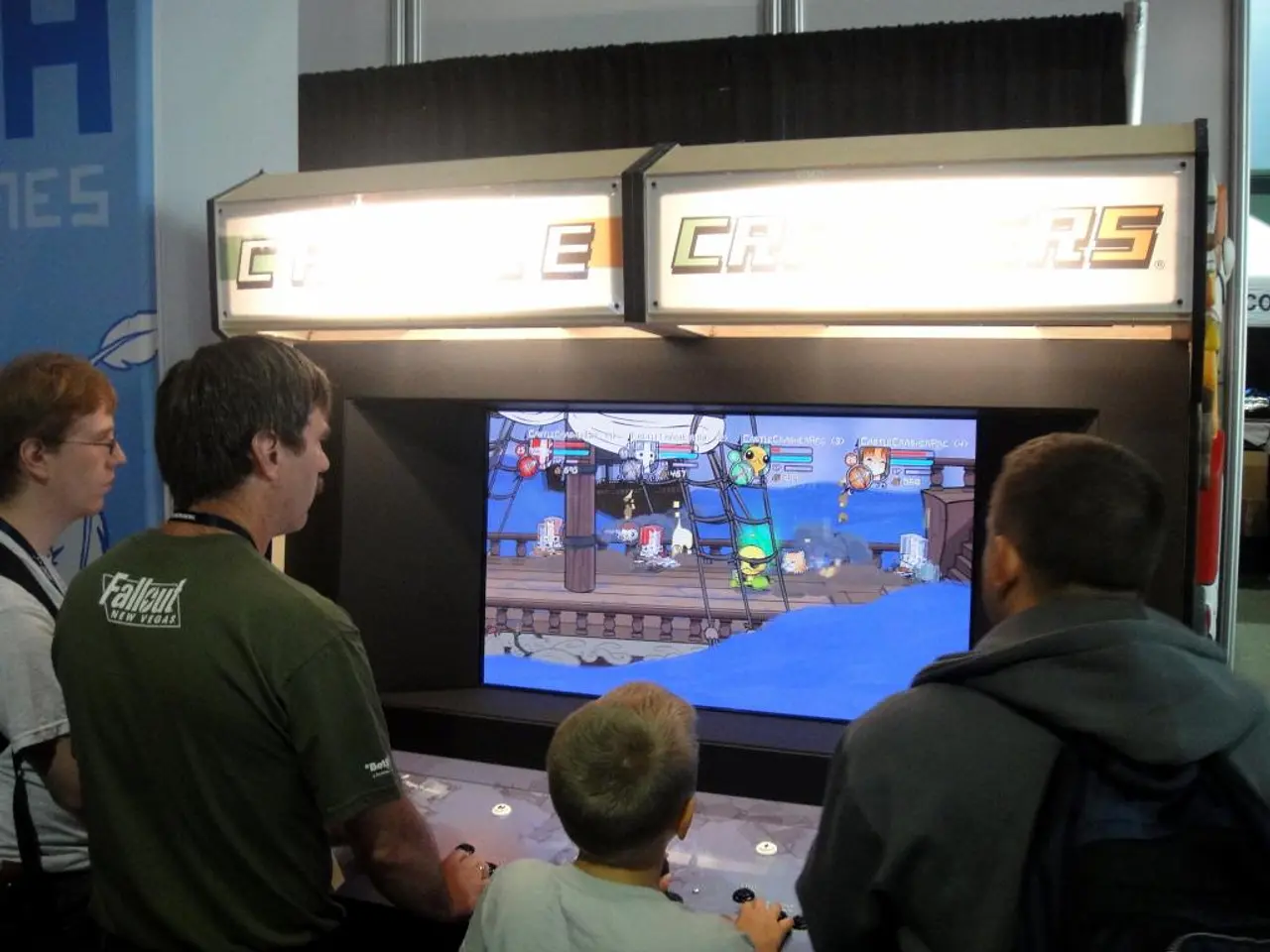Expanding video game accessibility for everyone: increased inclusivity in the gaming world
In the vibrant world of video games, 2025 marks a significant milestone in the quest for inclusivity. The gaming industry is increasingly embracing advanced technologies and inclusive design principles to break down barriers for players with disabilities.
Artificial Intelligence (AI) is leading this revolution, with AI-powered accessibility tools transforming gaming experiences. These tools, such as customizable controls, adaptive difficulty, and assistive interfaces, dynamically adjust game elements to suit individual needs, offering a more tailored and adaptive gaming experience.
Cloud gaming platforms, like Xbox Cloud Gaming, NVIDIA GeForce Now, Amazon Luna, and PlayStation Now, are removing hardware barriers by allowing users to stream games on various devices without the need for powerful consoles or PCs. This innovation enables players with physical disabilities to utilise devices better suited to their needs, such as tablets or smartphones with specialized input methods.
In terms of representation, game developers and publishers are focusing on inclusive narratives and accessibility options. This cultural shift includes developing games with diverse characters and narratives, as well as building in accessibility options like subtitle customization, colourblind modes, and alternative control schemes.
Industry events, such as Summer Game Fest and CES 2025, are emphasizing the importance of accessibility and inclusive participation, signalling a growing industry-wide awareness that designing for diverse player abilities is a key growth and engagement strategy.
AI integration is also being used to enable conversational interfaces, virtual assistants, and security/privacy features, making navigation and social interactions easier for disabled gamers.
However, despite these advancements, accessibility in video games remains an unfinished mission. The absence of universal and binding norms or legislation leaves each developer free to define their own practices, leading to unequal efforts towards inclusivity.
Organisations like AbleGamers, founded in 2004 and based in the US, are working tirelessly to address this issue. They collaborate with major studios and developers to ensure games are accessible to all, and offer training and awareness sessions on accessibility and inclusivity in gaming.
In France, the disability law promotes inclusion but remains vague about specific requirements for video games. This lack of clarity is a challenge that needs to be addressed to ensure fair access for all players.
Innovations like the democratization of haptic vests, such as Actronika studio's Skinetic, are expanding physical sensations to the video game industry, allowing players to experience tactile feedback.
Notable examples of accessible gaming include The Last of Us Part II, which offers over 60 accessibility functions, including advanced parameters for mobility, hearing, and sight. Forza Horizon 5, developed in 2021, offers a sign language option for hearing-impaired individuals.
Collaborations between companies, such as Logitech and AbleGamers, are also creating gaming kits for players with motor disabilities. These innovations, while significant, are yet to be adopted equally across the industry.
In conclusion, the gaming industry in 2025 is making strides towards a more inclusive future. However, clearer legislation and universal norms are needed to harmonize these efforts and ensure fair access for all players. With continued collaboration and innovation, the dream of a fully inclusive gaming world is within reach.
- The advancements in technology, particularly AI, are driving innovation in the gaming industry, introducing tools like customizable controls and adaptive interfaces to make gaming experiences more accessible for individuals with disabilities.
- Cloud gaming platforms, such as Xbox Cloud Gaming, NVIDIA GeForce Now, Amazon Luna, and PlayStation Now, are revolutionizing the industry by enabling players with various disabilities to game on devices better suited to their needs, like tablets or smartphones with specialized input methods.




